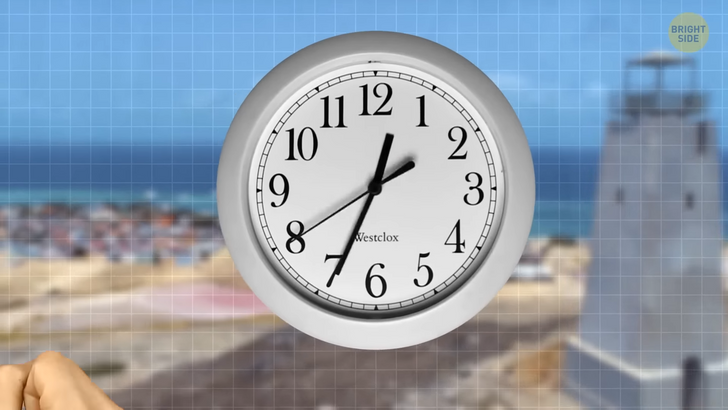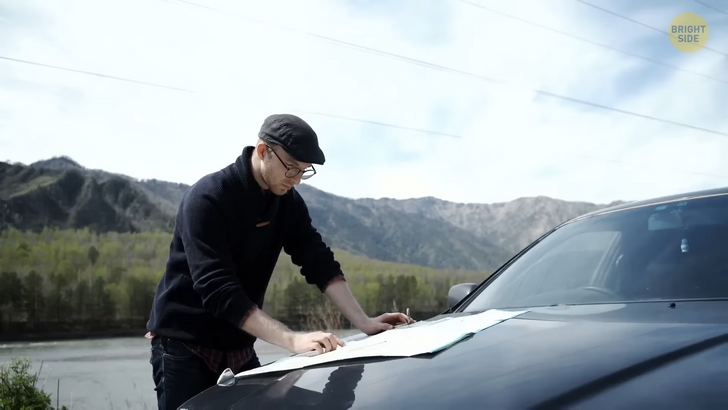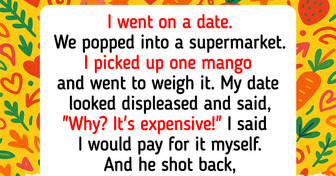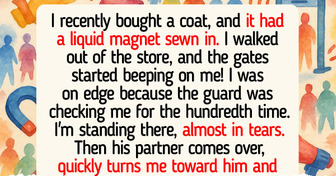I Asked for a Raise After 10 Years and Lost My Job — They Didn’t See My Next Move Coming


It’s your first trip to Egypt, and your new friends there invited you for lunch. The food seems a bit dull, so you decide to spice it up with salt and pepper. You don’t see it on the table, so you ask the host for it, and you notice everyone’s shocked. It turns out it’s a huge insult to the cook when someone wants to change the original taste of the food on their plate. The cook made it that way for a reason and wanting to spice it up means showing that the dish wasn’t good enough.

You’re used to doing it as a kind gesture around the world but don’t tip waiters, taxi drivers, or hotel workers in Japan. They can get offended because they already get paid for providing you with good service, and there’s no need for extra money to make it any better. If you really want to show appreciation, just say thank you. It’s okay to tip private guides, tour companies, and interpreters. You can put any amount that feels right to you in an envelope and hand it down to them.
If you want to impress your new Japanese friends or colleagues, take some time to study chopstick etiquette. When you master the art of holding chopsticks, remember not to rub them together. People do it to remove splinters, so it might look like you’re unhappy with the quality of the pair that your host provided you with. Don’t put your chopsticks vertically in your bowl of rice — this way, it can be seen as an offering to the deceased. Don’t wave chopsticks in the air or use them to point at things — both are considered really rude. The same is true with moving things with your chopsticks or the hand holding them. It looks disrespectful, plus you’re likely to spill things.

When in Italy, don’t order a cappuccino after noon. The locals don’t do it because they believe the milk and foam turn this drink into a meal, and it’s not good for digestion. Also, be prepared to enjoy your coffee standing at the bar and pay for it before you even order it. First, you pay at the cash register, then show the receipt to the server to get your drink.
Are you a big fan of chewing gum? Well, you’ll have an uneasy time in Singapore. Using, selling, and importing chewing gum is banned there, and you’d have to pay up to several thousands of dollars for doing it. This law was introduced in the 1990s to make the city cleaner and... keep the local fast trains up to schedule. When they launched a new transit system, passengers stuck gum onto train door sensors causing some serious delays. With the new rules, this problem was solved. The “no gum” policy, along with many other strict rules, did help to make Singapore a really clean and fine city (pun intended). If you absolutely can’t imagine your life without chewing, the local authorities recommend replacing the gum with bananas.

When someone asks you to pass them something, like salt, at the table in Bolivia, don’t give it directly to them. Hand it to the person sitting next to them, and they’ll pass it for you. If the person next to you is asking for that little favor, you still can’t hand it straight to them. The person next to you will have to help. This table etiquette comes from a superstition that handing something to someone directly into their hands brings bad luck. For the same reasons, you can’t reach across the table or stand up to pass something or toss it to someone. And don’t forget to keep both hands on the table when you aren’t eating. It might look like you’re trying to hide something if your hands aren’t visible at all times.
When you arrive for a meal in Jordan, the hosts may give you some bitter Arabic coffee as a warm welcome. Don’t try to stretch it for the rest of the evening. The polite thing to do is to empty it fast. Only when everyone’s done with the drink do people go back to socializing. As you pass the empty cup to the hosts, make sure to jiggle your wrist. If you just pass it without jiggling, it will mean you’re asking for a refill.

Don’t rush to arrive at an event on time in Venezuela. People might think that you are rude or greedy. The polite thing to do is to be 10-15 minutes late. Events scheduled for 7:00 will often begin at 8:00 or later. A popular story goes that in the 1980s, a foreign reporter arrived at a press event more than an hour late. When he saw the room was mostly empty, he went to apologize to the host for missing the event. The host then told him he was the first reporter to arrive. It’s quite interesting because the clocks in this country have officially been 0.9 seconds ahead of the rest of the world for years.
Are you planning to travel by bus in Ireland any time soon? Don’t forget to thank the driver for the ride on your way out of the bus. You’ll hear an overwhelming majority of locals do it loudly as it’s basically not optional.

Choose the gift wisely if you’ve been invited to a home in Vietnam. It’s okay to bring fruit, sweets, or incense. Handkerchiefs are believed to be a symbol of a sad farewell, and cutting tools are a sign of cutting relationships, so don’t bring those. Wrap your gift in colorful paper and don’t opt for black. The locals believe this color to be a bad omen. When you present the gift, hold it with both hands. And don’t be surprised the hosts won’t open it straight away. It’s done after the giver has left.
Don’t leave anything on your plate in India — it’s a sign of disrespect for the food you were served. Food is considered sacred in the country, so it would upset your hosts a lot. So wash and dry your hands before starting the meal, don’t forget to praise the cook, and wait for the eldest to stand up before you leave the table. In South India, it’s common to serve food on a banana leaf. You gotta fold it over from the top when you’re done with the meal. Folding it from the bottom means you weren’t satisfied with what you got.

It might be a good conversation starter elsewhere, but don’t brag about your achievements in Denmark. The locals believe that everyone is equal, so you won’t hear them talk about their successful careers or talents or how special they are. And they expect the same from you. If you’re looking for a good topic: they’ll gladly talk to you about the greatness of their country. The Danes are really proud of it and all its wonders.
If you’re going on a trip to Germany and plan to drive on the famous Autobahn, make sure to tank up before you hit the road. Stopping, parking, making u-turns, and backing up on this super speedy highway is illegal. Yes, even if you have to stop because you run out of gas, you’ll have to pay a fine since you were supposed to plan things better. And although the Autobahn technically doesn’t have a speed limit, watch out if you’re passing by urban areas, like Frankfurt, Berlin, and Munich, or construction works and heavy traffic. There will be special speed instructions for these spots.

In case you’re planning to explore Cyprus by car, quench your thirst before you start the vehicle. Drinking anything, including water, isn’t allowed while driving on the island. So if you can’t resist snacking or drinking behind the wheel, prepare to pay a fine.
In Ethiopia, you gotta think twice before choosing a gift for someone. They see it as a debt they’ll have to repay in the future. So if you bring something really expensive, the receiver will either have to spend a lot of money on a return gift or feel indebted to you.











